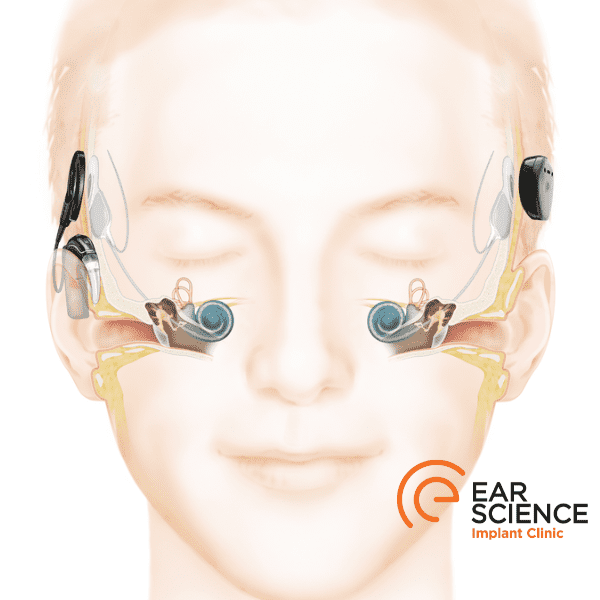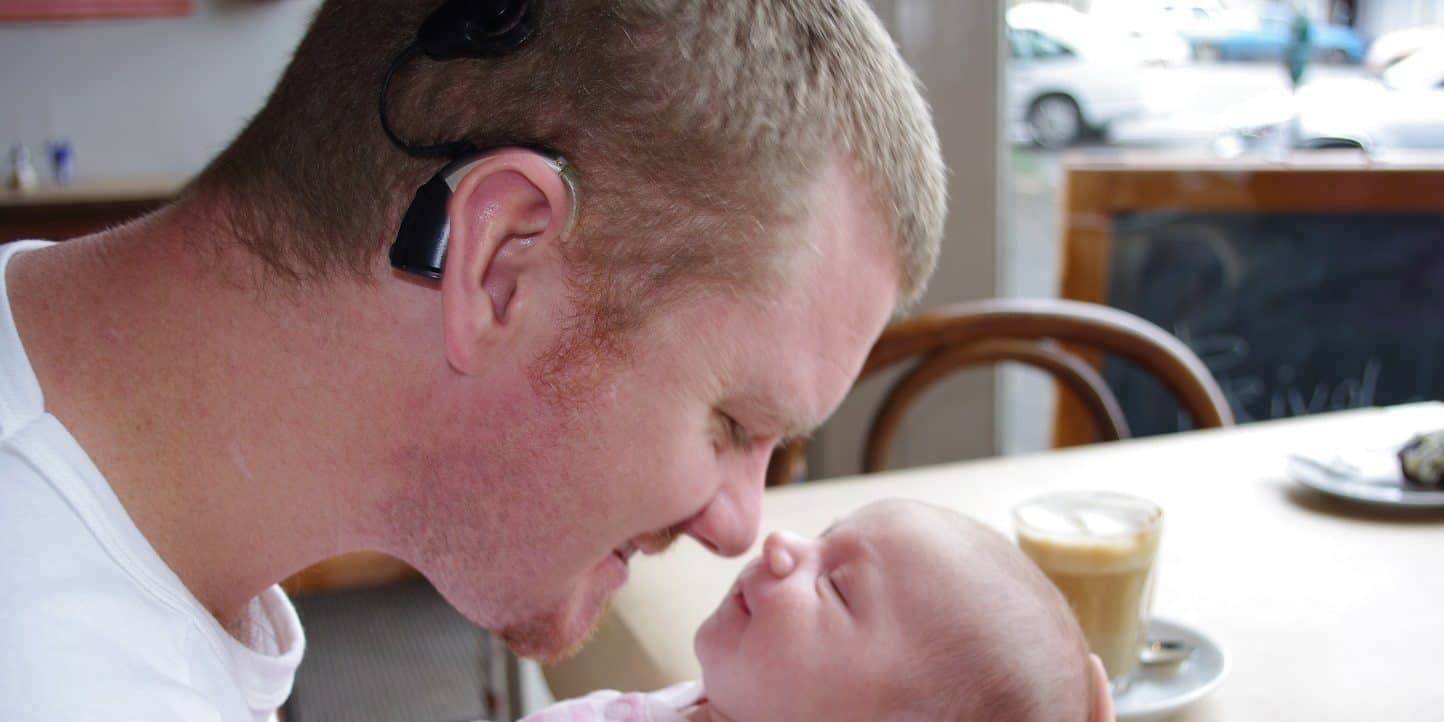Your hearing won't heal itself, we can help.
Thousands of Australians could benefit hugely from a hearing implant. Can you believe that only a little more than 8% of those that need a cochlear implant will get one?
At Ear Science Implant Clinic, we are committed to increasing this number and providing hearing implants to individuals all over WA. With 4 locations, we are the most extensive private hearing implant clinic in Western Australia. With a highly-skilled team of audiologists in Perth working alongside experienced surgeons, our team cares for over 1,300 hearing implant recipients, with a large percentage of these receiving cochlear implants. This number only continues to grow each year.
Cochlear Implant Q&A with Jody
Jody was born with significant multigenerational hearing loss, wearing hearing aids since she was young; she knows the benefits of ear and hearing treatments. Jody, her son and her father all experienced varying degrees of hearing loss and are all cochlear implant recipients, experiencing the life-changing emotional, social, educational and professional impacts of hearing devices. Being part of three generations of recipients gives Jody a unique perspective of the beautiful world of hearing through hearing technology. Jody received simultaneous bilateral implants at the Ear Science Implant Clinic and can now clearly understand the words her loved ones are speaking. Most importantly, she can hear her children, no longer missing the sounds of life.
Will a cochlear implant help me hear better than my hearing aids?
Cochlear implants are not necessarily ‘better’ than hearing aids. They are a hearing loss treatment option for people with certain types of hearing losses, particularly those who are not getting the clarity of sound from their hearing aids. I could hear sounds, but I could not understand what people were saying. My hearing aids were amplifying the sound, but my cochlear implants have given me increased speech clarity and a longer-term solution for my hearing loss.
Unlike hearing aids, which make sounds louder, cochlear implants work by bypassing the damaged parts of the inner ear (cochlea) to give you both volume and clarity. The device delivers the sound signals straight to the hearing nerve.
When to consider a cochlear implant?
A cochlear implant might be right for you if you struggle to understand speech, even with correctly fitted hearing aids. Answering the questions below can provide some insight if a cochlear implant might be right for you.
When wearing well-fitted hearing aids, do you:
- Find it hard to hear on the phone?
- Often ask people to repeat themselves?
- Find it difficult to follow a group conversation and avoid social situations?
- Rely on lip-reading to understand what is being said?
If you answer yes to these questions, you may benefit from a cochlear implant.
You can also call our Ear Science Implant Clinic team to speak to a cochlear implant recipient or come in to see one of our audiologists to find out if a cochlear implant might be right for you.
How much does a cochlear implant cost?
In Australia, cochlear implants are well funded. The three main funding options are private health insurance, the Department of Veterans’ Affairs and the public health system.
For those with private health coverage, most of the costs are covered by your insurance provider, including the hearing implant cost. There is no waiting time, you can choose when you would like to have your surgery, and device upgrades are covered, saving you several thousand dollars every 3 to 5 years. The cost of the surgery and your hospital stay will depend on your surgeon and your level of health insurance coverage.
The West Australian State Government funds a certain number of implants every year. If you choose this funding option, services are provided by your tertiary hospital; you will need to obtain a referral to ENT from your GP and discuss with them the associated costs and waiting times as well as eligibility for upgrades
If you have a Veterans’ Gold Card or White Card specific for hearing loss, the costs associated with a hearing implant may be covered in full by the Department. The Ear Science team can assist you in understanding what you are eligible for.
Are there any age requirements to get a cochlear implant?
You are never too old for a cochlear implant. Cochlear implants may be a suitable option for newborns to people aged ninety and older who have severe to profound hearing loss. I get asked this question a lot, “Am I too old for a cochlear implant?” and I have one answer – “no, you are not!”
As long as you are healthy and pass an ENT specialist’s medical review, then a cochlear implant might be right for you. Our oldest recipient was 98 years at the time of surgery, and she loved her implant.
How long does the surgery last for a cochlear implant?
You will be pleased to know that the surgery takes about 1 to 2 hours with an overnight stay in the hospital.
What does it ‘sound’ like with a cochlear implant?
Initially, it can be overwhelming as your brain makes sense of so many sounds that you haven’t heard for many years. For me, it was a dripping tap and the sound of rain on the roof, I had not heard these sounds for about ten years before my implants. So as you can imagine, it is an exciting time, but it can take a while to get used to these new sounds, and you need to be patient.
The sounds you will hear through your cochlear implant sound different to what you remember ‘normal’ speech to sound with and without your hearing aids. But with hard work and the specialist support of the audiologists at Ear science Implant clinic, you will adjust to hearing differently, with everyone working towards you hearing your best.
I still find hearing and listening challenging in some situations, such as when I am in background noise. However, I can now participate in conversations that I missed out on before.
Cochlear implants will aid your hearing, but it is essential to have realistic expectations of what they can do and what they might initially sound like.
Sound quality | Sounds around you may seem different when you first get your cochlear implant. Your audiologist will initially set your device to your hearing levels. Depending on how long you’ve had a hearing loss, it could have been some time since you’ve heard certain sounds at their regular pitch and volume. While sounds may be different, it is important to remember that the more you wear your cochlear implant, the more natural sounds will become.
Voice | Your voice will sound different at first. It is essential to do lots of reading aloud to get used to hearing your own voice. If you have any discomfort, discuss this with your audiologist.
Background noise | Background noise is annoying and a nuisance for everyone. Even people with normal hearing have difficulty understanding speech clearly in background noise. Cochlear implants cannot remove or eliminate background noise, no matter the level of technology – instead, they will help reduce it and improve the level of comfort.

How do Cochlear Implants work?
Cochlear implants bypass the damaged part of your inner ear, the cochlear, to stimulate the hearing nerve. A cochlear implant can make sounds clearer, not just louder. It also provides a long term, stable hearing outcome.
Am I a Cochlear Implant Candidate?
Any person with a moderately severe to profound degree of hearing loss of a sensorineural nature (in the inner ear or cochlear) in one or both ears might be a possible candidate for a cochlear implant. In most cases, the person must have trialled hearing aids unless the hearing loss is severe enough not to be fitted with a hearing aid. There is no lower or upper age limit. An audiological and medical assessment will review the integrity of the nerve, and expectations will be discussed, depending on the hearing and amplification history provided during the assessment.




